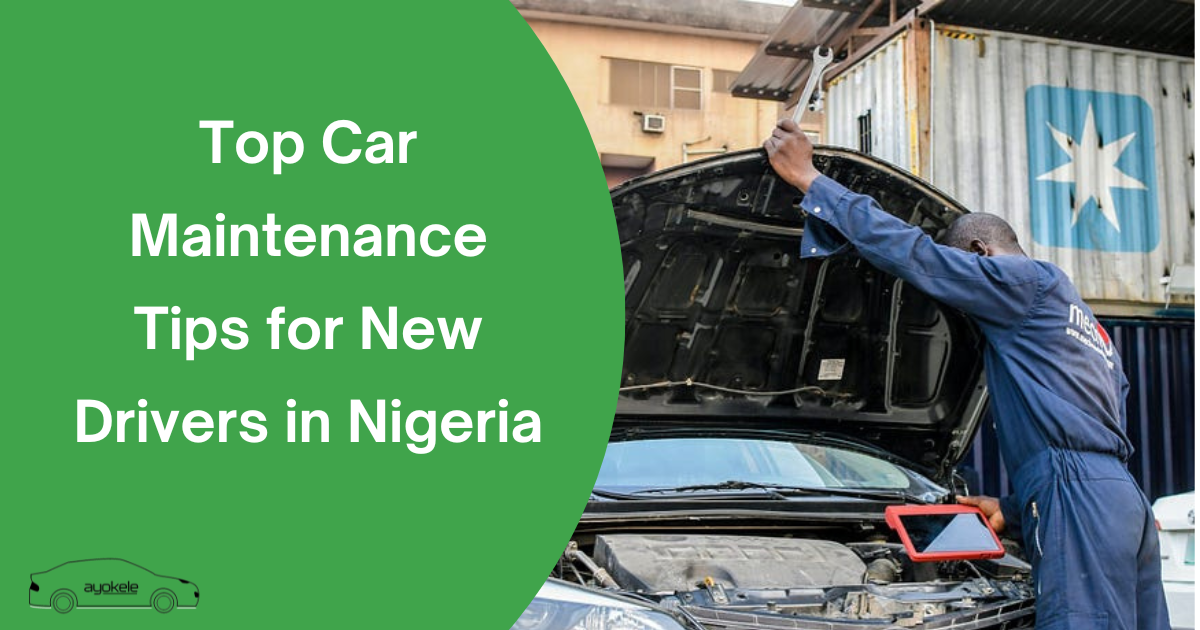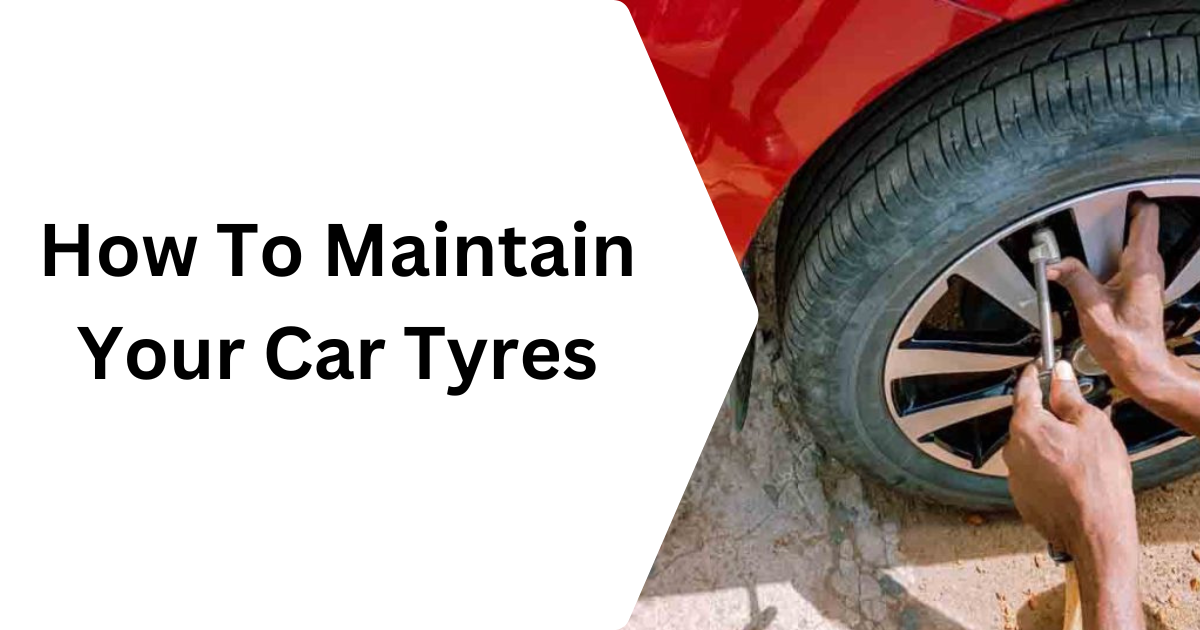As a new driver in Nigeria, keeping your car in good condition is essential for safe and hassle-free driving. Proper car maintenance not only ensures your vehicle performs well but also helps you avoid unexpected breakdowns, especially on challenging Nigerian roads.
In this article, we’ll share 10 essential car maintenance tips, divided into three key categories: Basic Maintenance, Preventive Maintenance, and Seasonal Maintenance. Each category focuses on specific aspects of car care to help you maintain your vehicle, save costs on repairs, and ensure your safety on the road.
Basic Maintenance Tips for New Drivers
1. Regularly Check Engine Oil Levels
The engine oil is the lifeblood of your car, keeping the engine’s moving parts lubricated and preventing wear and tear. Regularly checking your engine oil level ensures that your car runs smoothly and avoids engine damage caused by low oil levels. To check the oil, use the dipstick under the hood.
Make sure the oil level is between the minimum and maximum marks, and that the oil is not too dark or dirty, which may indicate it needs changing. It’s recommended to check your oil level at least once a month and top it up if needed. Ensure you’re using the right type of oil specified in your car manual.
2. Monitor Tire Pressure and Tread
Properly inflated tires are critical for safe and efficient driving. Tires with low pressure wear out faster, increase fuel consumption, and reduce handling performance. On the other hand, overinflated tires can cause poor grip on the road. Use a tire pressure gauge to check the air pressure regularly, ideally once a week, and ensure it matches the recommended PSI (pounds per square inch) in your car manual.
Additionally, inspect your tire tread for wear and tear, as bald tires can lead to skidding, especially on wet roads. A simple way to check tread depth is by using a coin or tread gauge. Always rotate your tires periodically to ensure even wear, and replace them if they’re worn out.
3. Inspect and Replace Worn-Out Brake Pads
Brakes are one of the most critical safety features of your car. Worn-out brake pads reduce braking efficiency and increase stopping distances, which can lead to accidents. Listen for any squealing or grinding sounds when you brake—this is often a sign that the brake pads need to be replaced.
Check your brake pads during regular servicing, or if you notice any performance issues. It’s also a good idea to check the brake fluid levels, as low fluid can affect braking performance.
4. Keep the Cooling System in Good Condition
The cooling system prevents your car from overheating, especially during long drives or in traffic. Low coolant levels can lead to engine overheating, which can cause severe damage. Regularly check your car’s coolant levels and ensure the fluid is clean and free of contaminants.
If it’s dirty or low, refill it with the correct coolant type specified in your car manual. It’s also essential to inspect the radiator and hoses for leaks or cracks, as these can affect the cooling system’s efficiency.
Preventive Maintenance Tips for New Drivers
1. Schedule Regular Servicing
Regular servicing is the foundation of preventive car maintenance. During servicing, a professional mechanic inspects various parts of your car, including the engine, brakes, fluids, and filters, ensuring everything is in good working condition. Routine servicing helps catch minor issues early before they turn into major problems, saving you from expensive repairs in the future.
Stick to the servicing intervals recommended by your car manufacturer, usually every 5,000 to 10,000 kilometers or every 6 months, depending on your car usage. For new drivers, it’s crucial to keep a record of service dates to avoid missing them.
2. Check Belts and Hoses
Belts and hoses are essential for the proper functioning of your car’s engine and other systems. Over time, belts can become loose, frayed, or cracked, while hoses may develop leaks due to wear and tear. These issues can lead to problems such as engine overheating or a complete breakdown if left unchecked.
Inspect belts and hoses for signs of damage during servicing or periodically. Look for cracks, splits, or unusual wear, and replace them if necessary.
3. Replace Air Filters Periodically
Air filters play a vital role in keeping your engine clean by trapping dust, dirt, and debris from entering the system. A clogged air filter can reduce engine performance, increase fuel consumption, and even damage the engine over time.
Check your air filter every 12,000 to 15,000 kilometers or as specified in your car manual. Replace it if it looks dirty or clogged.
4. Test Battery Health Regularly
A dead battery can leave you stranded unexpectedly, making it crucial to test your car’s battery regularly. Check for signs like difficulty starting the car, dim headlights, or a bloated battery case, which may indicate the battery is nearing the end of its life.
Have your battery tested during servicing or with a battery tester. Ensure the terminals are clean and free of corrosion, as this can affect the battery’s performance. If your battery is over 3-4 years old, consider replacing it to avoid sudden failures.
Seasonal Maintenance Tips for Nigerian Drivers
1. Preparing for the Rainy Season
The rainy season can present serious challenges for drivers, such as slippery roads, low visibility, and waterlogged areas. To prepare your car for this season, start by checking your windshield wipers. Worn-out wipers can smear the windshield and reduce visibility during heavy rain. Replace them if they leave streaks or don’t clear the glass properly.
Tires are another critical component during the rainy season. Make sure your tires have sufficient tread depth to maintain grip on wet roads and prevent hydroplaning. Ensure they are properly inflated according to your car manual. Lastly, check your brakes to ensure they’re responsive, as wet conditions can increase stopping distances.
2. Maintaining Your Car in Dry Weather
Dry weather, especially in dusty environments, can affect your car’s performance. Dust and debris can clog air filters, reducing engine efficiency and causing higher fuel consumption. During this period, inspect and replace your air filter regularly to keep the engine clean and performing at its best.
Additionally, dusty conditions can accumulate grime on your windshield, headlights, and body, reducing visibility and aesthetics. Wash your car frequently to remove dust and prevent scratches caused by dirt buildup.
Benefits of Proper Car Maintenance for New Drivers
1. Extends the Lifespan of Your Car
Regular car maintenance helps ensure that all components of your vehicle are working efficiently, reducing wear and tear. By taking care of essential parts like the engine, tires, and brakes, you prevent unnecessary damage and extend the lifespan of your car.
For new drivers in Nigeria, where road conditions can be tough, proper car maintenance is even more critical. Regular servicing and inspections keep your car in top condition, allowing it to handle potholes, rough terrains, and heavy traffic without significant damage.
2. Reduces Repair Costs
Car maintenance might seem like an additional expense, but it actually saves you money in the long run. Routine checks and timely repairs prevent small issues from escalating into major, costly problems. For example, replacing worn-out brake pads is much cheaper than repairing damaged brake rotors caused by neglect. New drivers often overlook maintenance, leading to unexpected repairs that could have been avoided.
3. Enhances Safety on the Road
Proper maintenance ensures that critical systems like brakes, tires, and lights function properly, significantly reducing the risk of accidents. For example, driving with worn tires or faulty brakes can lead to dangerous situations, especially in heavy traffic or during the rainy season.
For new drivers, car maintenance builds confidence on the road. Knowing that your car is in good condition allows you to focus on driving safely, without worrying about unexpected breakdowns or malfunctions.
Frequently Asked Questions
1. How often should I service my car as a new driver?
It’s recommended to service your car every 5,000 to 10,000 kilometers or every 6 months, depending on your car’s usage and the manufacturer’s guidelines. Regular servicing helps identify potential issues early and keeps your car in optimal condition.
2. What are the most important parts to maintain in a car?
Key parts to maintain include the engine, brakes, tires, battery, and cooling system. These components are essential for the car’s performance and safety. Ignoring them can lead to breakdowns or costly repairs.
3. How can I tell if my car’s engine oil needs changing?
Check your car’s engine oil level with the dipstick. If the oil is dark, gritty, or below the minimum mark, it’s time for a change. Also, follow the oil change interval in your car manual for guidance.
4. What should I do if my car’s warning lights come on?
Don’t ignore warning lights on your dashboard. They indicate issues like low oil, overheating, or brake problems. Consult your car manual to understand the specific warning and address the issue promptly.
5. How can I maintain my car’s battery health?
Regularly inspect your car battery for corrosion and ensure the terminals are clean. Avoid leaving lights or electrical devices on when the engine is off. Test the battery during routine servicing, especially if it’s over three years old. making it a responsibility every new driver should prioritize.
Proper car maintenance is essential for ensuring safety, reducing repair costs, and extending your car’s lifespan. As a new driver, adopting good maintenance habits will keep your vehicle running smoothly and reliably. Stay proactive, and your car will reward you with years of dependable performance.




